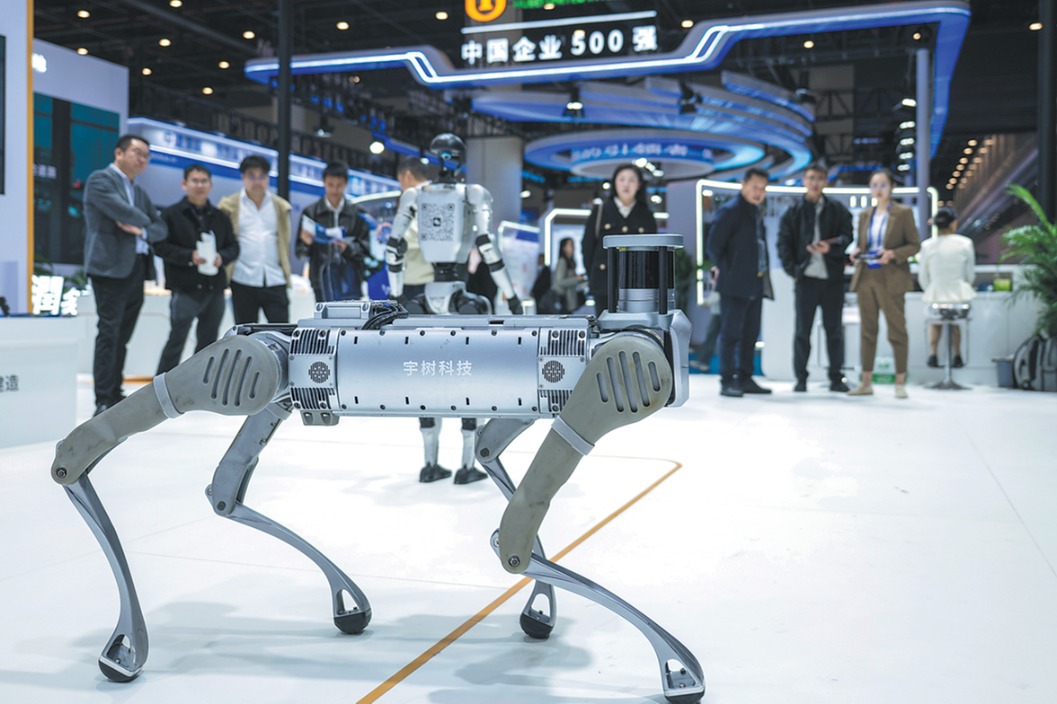Changing paradigm of global competition
The global value chain is a victim of geopolitical risks, but it is also fueling and amplifying the risks

The global value chain is a victim of geopolitical risks, but it is also fueling and amplifying the risks

The technological revolution is changing the pattern of supply chains and the global production network. Geopolitical tensions and coercive economic policies are amplifying uncertainty and distrust in the global value chain, which in turn reflect and affect the paradigm of global political and economic competition, leading to new changes.
In the context of the new round of the technological revolution, the value chain of cutting-edge technologies has become a key focus of geopolitical games. Technology plays a key role in economic, military and other forms of power, and the dissemination and sharing of technology can endow competitive power.
The international political and economic competition featuring technological control has shifted its focus to decoupling and reshoring the global value chain. Due to new technological advancements such as information and communications technology, artificial intelligence, quantum computing, semiconductors, and aerospace, which have redefined the technological boundaries of national security, the strategic importance of the semiconductor industry, known as the "cornerstone" of technology, is destined to be pushed to the highest peak. So far, two noteworthy concepts have emerged in the global value chain embedded in the technological and geopolitical competition. One is the "strategic value chain" in the field of cutting-edge military-civilian dual-use technology; the other is the strategic part of the global value chain, which means controlling leading technological nodes or hubs that have strategic significance for controlling the global value chain. Therefore, the global value chain will not only become a victim of geopolitical risks, but also fuel and amplify such risks.
The expansion of the global value chain has not stopped countries from weaponizing it to achieve their foreign policy goals. On the contrary, the global value chain has improved some countries' ability to strategically use economic means, while also increasing the vulnerability of other countries. This not only includes the high dependence of some countries on other ones for imports of key materials and intermediate goods for finished products, but also reflected in the desire to control key knowledge and technology, including through the use and mining of data. In this sense, the global value chain is more precisely a strategic value chain wherein some countries can use economic dependence as a political weapon to drive a shift in the paradigm of global political and economic competition.
In fact, the trade war between China and the United States has had an extremely strong impact on the structure of the global value chain, coupled with the embedded background of the new technological revolution; the global value chain is currently undergoing the largest restructuring over the past 40 years. Therefore, the uncertainty of geopolitics is driving some countries to try and break the interdependence that has been established in the value chain. At the same time, geopolitical interests are also changing the pattern and organizational structure of the global value chain to interpret national strategic significance through mandatory economic measures such as export controls, boycotts, sanctions, and cyber attacks. Moreover, the adjustment and restructuring of key supply chains has become a tool for geopolitical competition for technological powers such as Europe and the United States to create new "asymmetric dependence "by leveraging their strengths.
The energy transformation has readjusted and reshaped the global value chain. The asymmetric dependence on resources and imbalanced technological development have produced new threats, which will also transform into a new geopolitical risks in the energy field. At present, the US and the European Union heavily rely on China for certain key minerals, which is seen as a significant geopolitical risk for the realization of their green transformation, although this risk can be partially offset through vertical supply chain control, investment in specific technologies and infrastructure, and innovation of other green energy sources. However, the geopolitical competition and games centering on these resources brought about by the transition to renewable energy is an unavoidable strategic issue.
Judging from the current strategies formulated by the EU and the US, it can be seen that they will in the future make large-scale investments in clean energy and technology research and development, with a focus on strategic projects in supply chains. In addition, the US is developing a geopolitical and geo-economic strategy for energy transformation in the 21st century, promoting the "re-returning, re-orientation, and rebalancing "of the clean energy and technology value chain. In fact, global technology competition in the field of renewable energy has begun, and economies will seek to control high-end technologies to ensure their competitive edge, and strategically restructure the global value chain through low-carbon technologies.
The complex characteristics of contemporary technology make it difficult for any advanced industry amid the fourth industrial revolution to independently complete and achieve a whole industrial chain nationwide, and allied partnerships have become a key choice for the EU and the US to strengthen supply chain resilience, with the premise of ensuring stable access to critical inputs through political alliances. "Friend shoring" has been included in the US trade policy. US Treasury Secretary Janet Yellen described it as deepening relations with allies, establishing supply chains between "friendly "countries to reduce the risk of disruptions.
At present, a Western alliance for industrial and technological cooperation is being initiated, especially in the semiconductors and green energy transformation. Commercial interests and fair trade are becoming things of the past. This will inevitably lead to fragmentation of the global value chains, weaken the stability of value chains in some countries, especially developing countries, and hinder the flow of global economic factors.
Yu Nanping is a professor at the School of Politics and International Relations, East China Normal University. Luan Xinwei is a doctoral student at the School of Politics and International Relations, East China Normal University. The authors contributed this article to China Watch, a think tank powered by China Daily.
Contact the editor at editor@chinawatch.cn


































